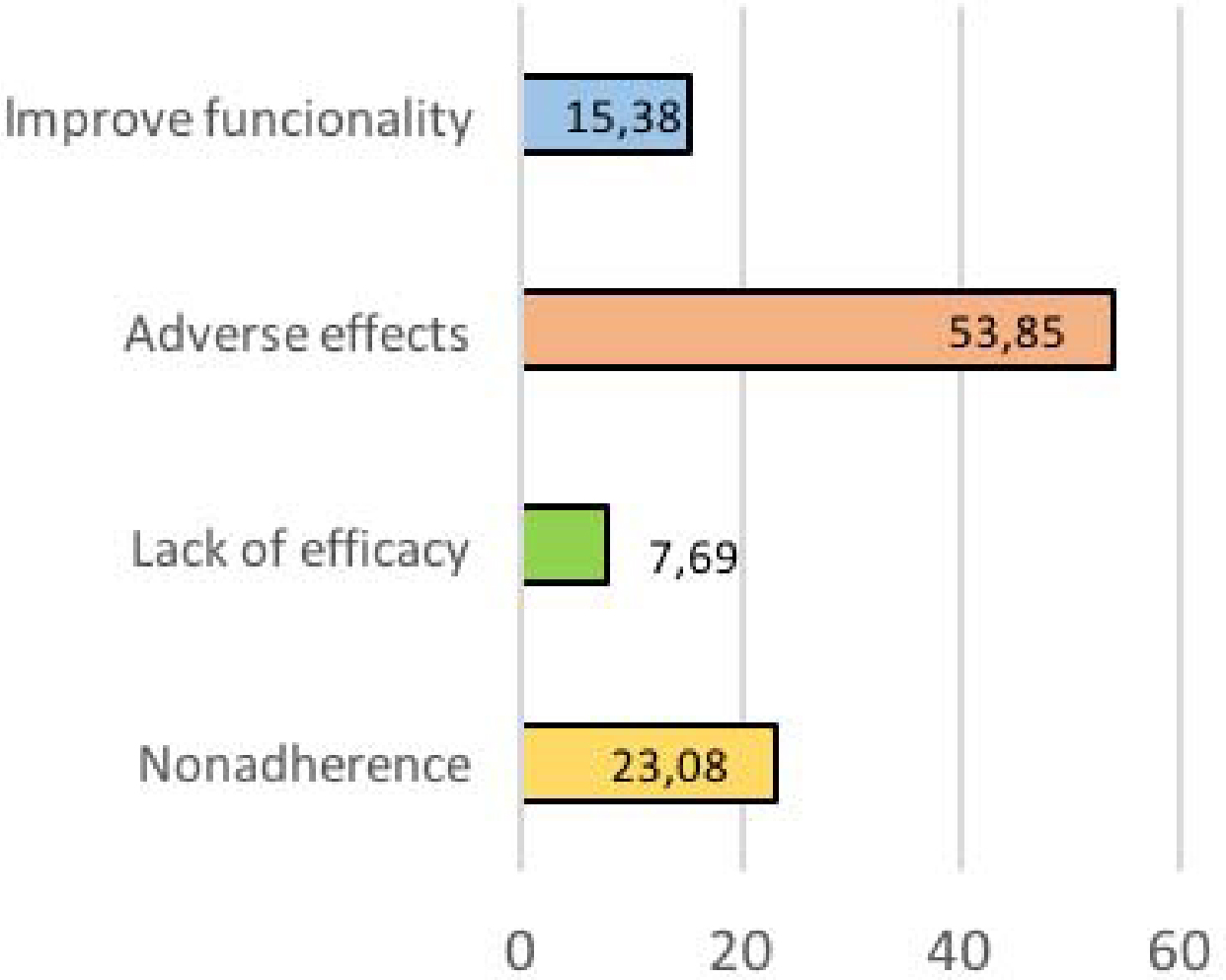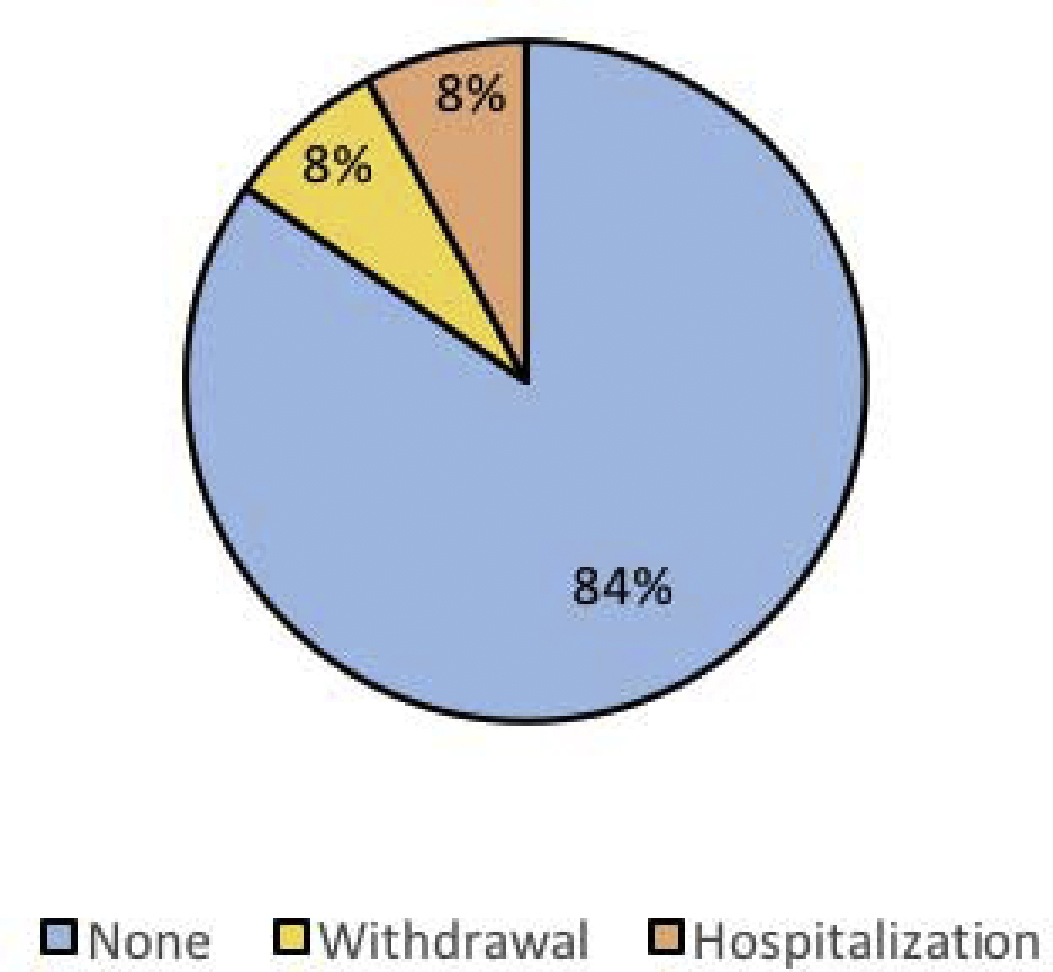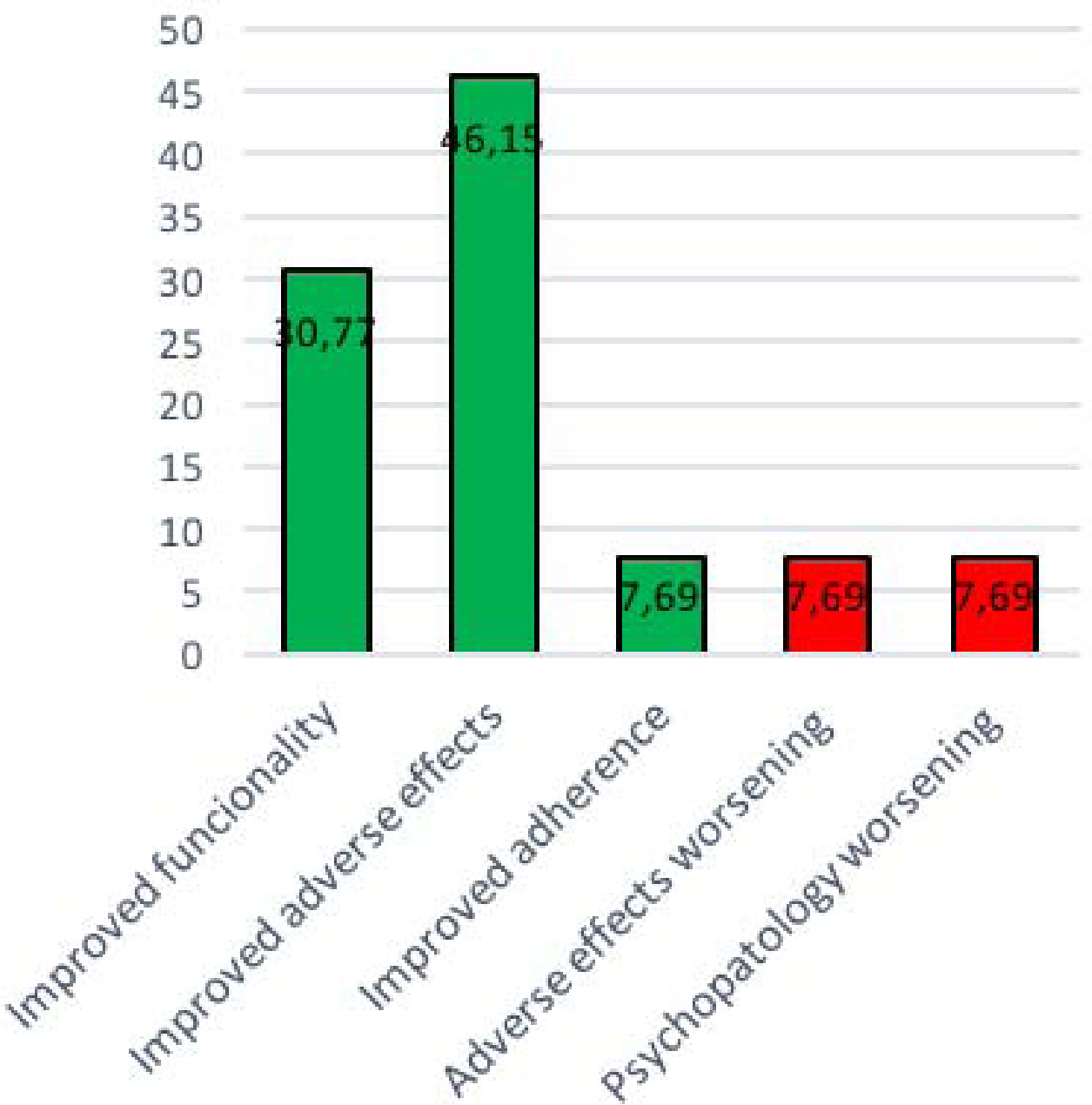No CrossRef data available.
Published online by Cambridge University Press: 23 March 2020
Aripiprazole once monthly (AOM) is one of the most recently introduced antipsychotics with a different mechanism of action, which seems to bring clinical and tolerability implications [1].
We describe the patient profile that may benefit from AOM treatment.
This is a single-centre, retrospective, one year follow-up study of 13 cases of ambulatory AOM use. We analyze clinical and functional evolution, and the tolerability profile of patients in a real clinical practice basis.
Mean age was 53.69; 53.8% were males and 46.2% females. The most frequent diagnosis was Schizophrenia and other chronic psychosis (69.3%). Only 7.7% had co-morbidity with substance use disorder (cocaine); 61.6% were on previous treatment with other injectable anti-psychotics; 84,6% of the sample received AOM as monotherapy. Reasons for switching to AOM are shown on Fig. 1. Events during switching are shown on Fig. 2. Outcomes with AOM long-term treatment were positive in 84.61% of cases and are shown on Fig. 3.
Switching to AOM could be considered as a good strategy to improve tolerability, functionality and ultimately adherence to treatment in patients in middle age of life with a chronic psychotic disorder [2].
Fig. 1
Reasons for switching.

Fig. 2
Events during switching.

Fig. 3
Outcomes with AOM.

The authors have not supplied their declaration of competing interest.
Comments
No Comments have been published for this article.